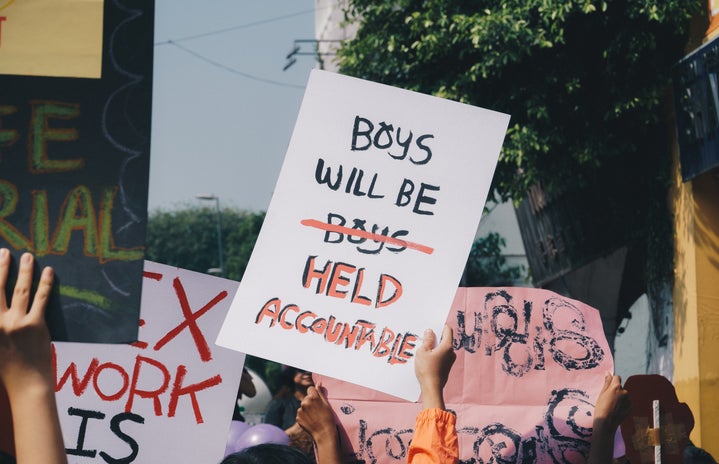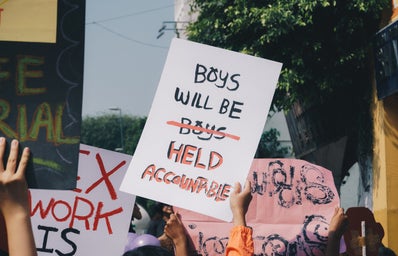In a recent trend that is rising on TikTok, women have been sharing their stories of being part of the new statistic of women who have been harassed by, mainly, men. These videos range from women supporting other women with their experiences, to explaining why they do not have to justify their experiences to men. However, a common phrase that shows up in the comments is: “not all men”. Now this phrase has been around for a long time, however, it wasn’t until the #MeToo movement exploded that the term “not all men” was popularized. Let’s unpack this phrase and its harmful effects.
Many people explain that we know that not all men have harassed or assaulted women. However, statistics show that although it is not all men, it is enough men to make women wary of all men. A new report shows that 97% of women report to have been sexually harassed in the United Kingdom, according to the UN. This new statistic came to light after the tragic death of Sarah Everard.
The reason “not all men” is a harmful phrase is mainly because it undermines what women are going through and perpetuates a cycle of victim-shaming. Furthermore, it shows that rather than listening to what women are experiencing and actively working to become a better ally, it shows that the person doesn’t really care about women’s issues. Not to mention that it goes hand and hand with the notion that feminism is to attack men, when in reality it is to fight the harmful effects of the patriarchy. The phrase intentionally misdirects the attention to problem of ‘not all men’ instead of the woman in this situation.
Recently, on social media platforms, in response to “not all men”, people are starting to use #yesallwomen. As Women’s History Month is wrapping up and more and more women are sharing their experiences, men need to understand that saying “not all men” is an unacceptable response to a woman sharing her experience. Instead, men need to listen to these experiences in order to be better allies.





